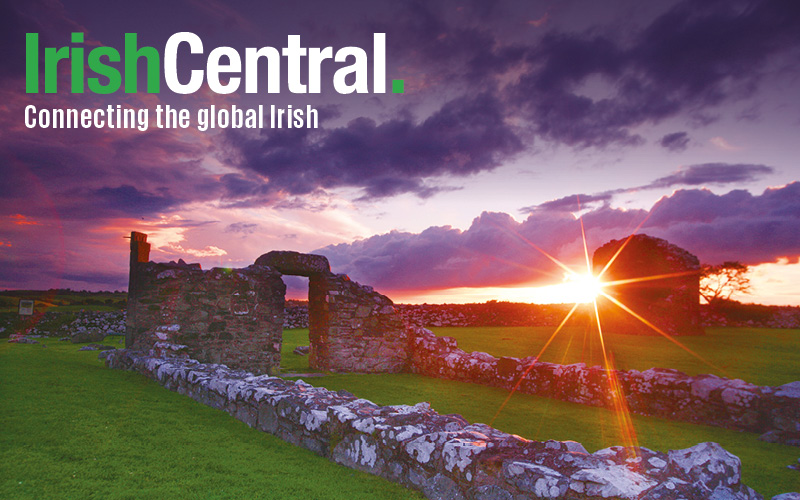Irish speakers the world over are constantly faced with the argumental questions on why there is a need to protect their language rights and why legislation and laws are needed to ensure that they are treated fairly and equally alongside their monolingual English-speaking compatriots, and nowhere are these questions more forcefully put than in Northern Ireland, where a community-led movement is currently striving to secure an Irish Language Act long promised as part of the St. Andrew's Agreement (signed in 2006).
The creation and implementation of this act has come to prominence in Northern Ireland politics especially in the last year as it became a hot topic in the attempts to form a government in Stormont with some claiming that Sinn Féin, in particular, has latched onto the issue in an unhelpful ploy to stall negotiations, in turn, becoming an obstacle in the Brexit process.
We'd completely disagree, however, with those who somehow attach the Irish-language issue with a lack of progress on Brexit. Considering that a majority of 50 out of 90 MLAs and 5 parties of the Assembly support a stand-alone Irish-Language Act for the north, it is simply wrong to suggest that this campaign belongs to any one party alone. The demand for legislation is coming from the community, over 12,000 members of which came out on the streets of Belfast earlier this year to show their support for an Irish-language act.
Retweeted caitlin (@caitlinharkin):
An Lá Dearg #BhíMéAnn 🇮🇪🐊⭕️ pic.twitter.com/AS9d5PKxAl https://t.co/kYob9XPwQt
— An Bradán Feasa (@abfscoil) May 20, 2017
North and south, almost two million people have some knowledge of the Irish language in Ireland and Irish has more daily speakers than half of the world’s languages. To say that that Irish is a dead language ignores the fact also that over 25,000 Americans indicated on the 2000 census that they speak Irish at home.
There is also evidence available to show the important role Irish can play in the Brexit process and how securing language rights for its speakers will, in fact, lend itself to ensuring the continued promotion of inclusivity and cooperation with all cultures in Northern Ireland.
Over 75,000 children benefit from Irish-medium education throughout Ireland each year. Studies have shown that learning a second language increases tolerance, and immersion education such as that provided by Gaelscoileanna, in particular, fosters a "greater tolerance of cultural difference and less racism" amongst children – something which is especially critical in ensuring that the north prospers as a society that respects all the cultures of its communities equally and inclusively post-Brexit.
Leis an iníon is sine inniu ag an Lá Dearg #achtanois pic.twitter.com/2TxNINbq6t
— Uachtarán CnaG (@UachtaranCnaG) May 20, 2017
An Irish Language Act would put an end to the prejudice, whimsical, and extremely detrimental decision-making regarding the language. It would provide a platform for the language to thrive and become part of a continued, and much-needed, cultural revival in this country. The cost of the act and the services that Conradh na Gaeilge (the Gaelic League) are advocating for have been discussed with the Stormont parties.
We estimate the implementation of basic services for the community arising from the act will be £19 million over a five-year Government term (and £9 million of this would be once-off costs), which works out at £3.8 million a year (or £2 million a year when you subtract the once-off costs). At a meeting we had with Arlene Foster, leader of the DUP, Edwin Poots of the DUP even said that the costs proposed by Conradh na Gaeilge are reasonable.
An Lá Dearg 20.05.17. lá stairiúil don Ghaeilge #Achtanois pic.twitter.com/72ttPCVCiQ
— Aodhán Ó Deá (@aodhanodea) May 20, 2017
Those who believe the language to be nothing more than a political pawn have yet to witness the incredible cultural revival within the Irish-speaking community in the north first hand. Conradh na Gaeilge would be more than happy to introduce all naysayers here in Ireland to this incredibly positive revival. I have no doubt also that our branches in Arizona, California, New York and elsewhere in the US would welcome the opportunity to show just how vibrant the local Irish-speaking community in the US is.
---
Dr. Niall Comer is President of Conradh na Gaeilge (The Gaelic League) and a lecturer of Irish in Ulster University. Conradh na Gaeilge is the democratic forum for the Irish-speaking community, and its main aim is to promote the use of Irish as the standard language in Ireland. The organization works on behalf of the Irish language and the people who use it throughout the island of Ireland and around the world. You can find more information or a branch near you at https://www.cnag.ie/en/.




Comments